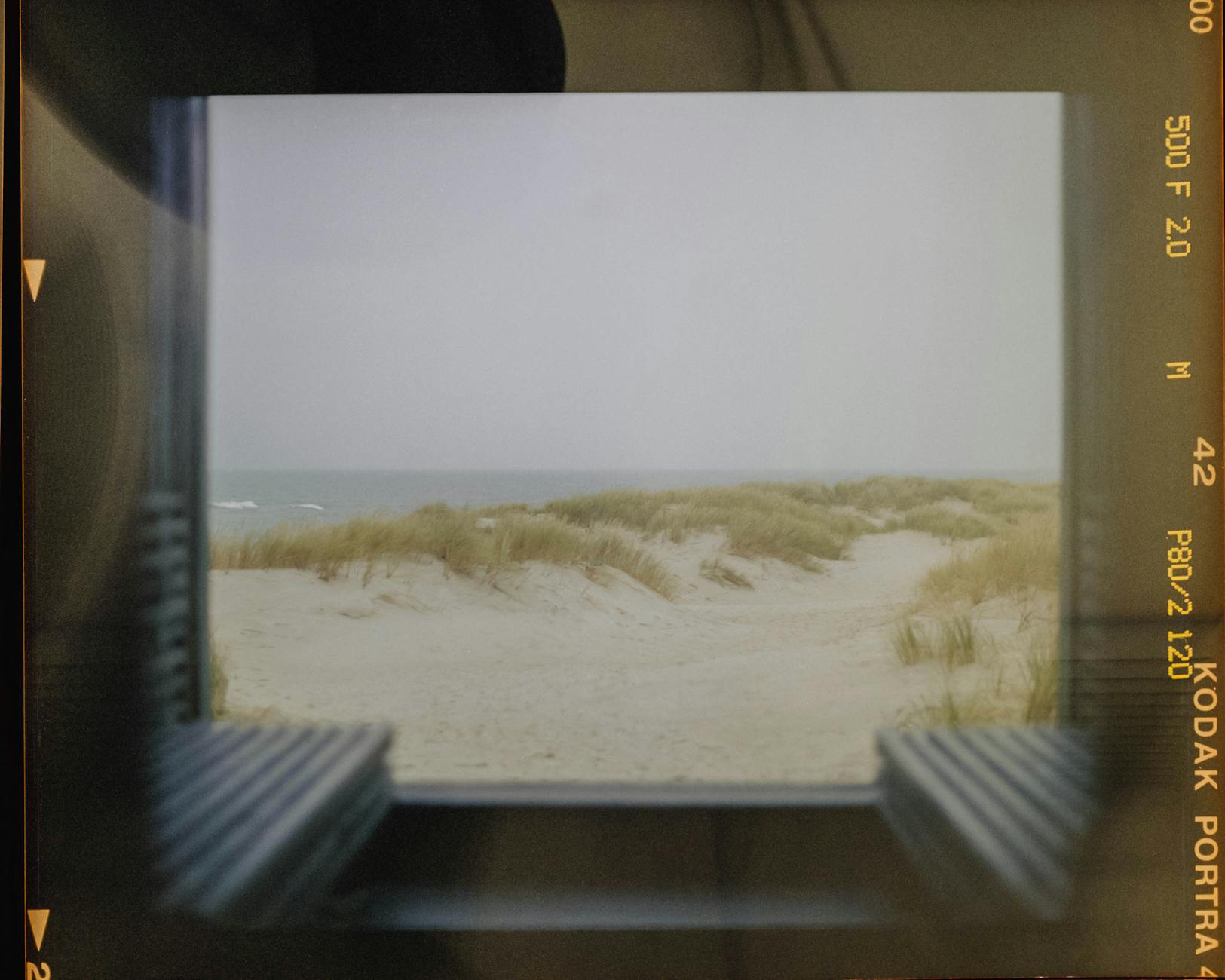In this article, we gonna explore some tech tools that can help you find healthcare while traveling. It’s super important, especially when you’re in a foreign country, right? Like, you never know when you might need a doctor, or worse, end up in a hospital. So let’s dive into this whole tech thingy.
Why You Need Healthcare Apps
So, like, why even bother with healthcare apps? They can be lifesavers when you’re in a pinch or maybe you just want to know where the nearest hospital is. I mean, it’s not like you can just walk up to a stranger and ask for directions to a clinic, right? Not really sure why this matters, but being prepared is always a good idea.
Top Healthcare Apps to Download
There’s a bunch of apps out there that promise to help you, but not all of them are worth your time. Here’s a list of the top ones that actually work, I think:
- HealthTap: HealthTap is, like, a virtual doctor in your pocket. You can ask questions and get answers from real doctors, which is kinda cool, I guess. But make sure to check your insurance, cause it can get pricey.
- Zocdoc: Zocdoc is another app that helps you find healthcare providers. It’s great for booking appointments, but again, you might run into some issues with insurance.
- Medici: Medici is for texting your doctor, which is awesome. But, like, can you really trust a doctor you’ve never met? That’s a good question.
Using Maps for Finding Clinics
Maps are super helpful too, if you don’t mind using your phone’s GPS. You can find clinics or hospitals nearby without much hassle, which is, like, a relief. I mean, who wants to wander around when they’re feeling sick?
Google Maps vs. Apple Maps
Google Maps is usually more accurate, but some people swear by Apple Maps. It’s a personal preference, I guess, but I wouldn’t trust Apple too much. Just saying.
Finding Reviews on Healthcare Facilities
Before you pick a place, you might wanna read some reviews. It’s not always easy to find reliable info, though. Maybe it’s just me, but I feel like people are too harsh sometimes. Like, if you’re sick, you probably don’t care about the ambiance, right?
Emergency Services Apps
Having an app for emergencies is a must. You never know when you might need to call for help, and it’s better to be prepared, right? Here’s a couple of good ones:
- Red Cross App: The Red Cross app is great for emergencies. It gives you tips and info on what to do in different situations, which is super helpful.
- ICE – In Case of Emergency: This app lets you store important medical info, which is smart. If you’re in a bad situation, it can save your life.
Telehealth Options While Traveling
Telehealth is becoming more popular, and it’s a good option if you can’t find a doctor. You can consult with a healthcare professional from anywhere, even your hotel room. But, like, can you really trust a doctor you’ve never met face-to-face?
Benefits of Telehealth
You don’t have to wait in a crowded waiting room, which is a big plus. But, like, sometimes you need a physical exam, which is a bummer when you’re traveling.
Final Thoughts on Tech Tools
So, in conclusion, tech tools can really help you find healthcare while traveling. Just make sure to do your research and be prepared for anything. It’s better to be safe than sorry! And don’t forget, always keep your phone charged, cause you never know when you might need it!
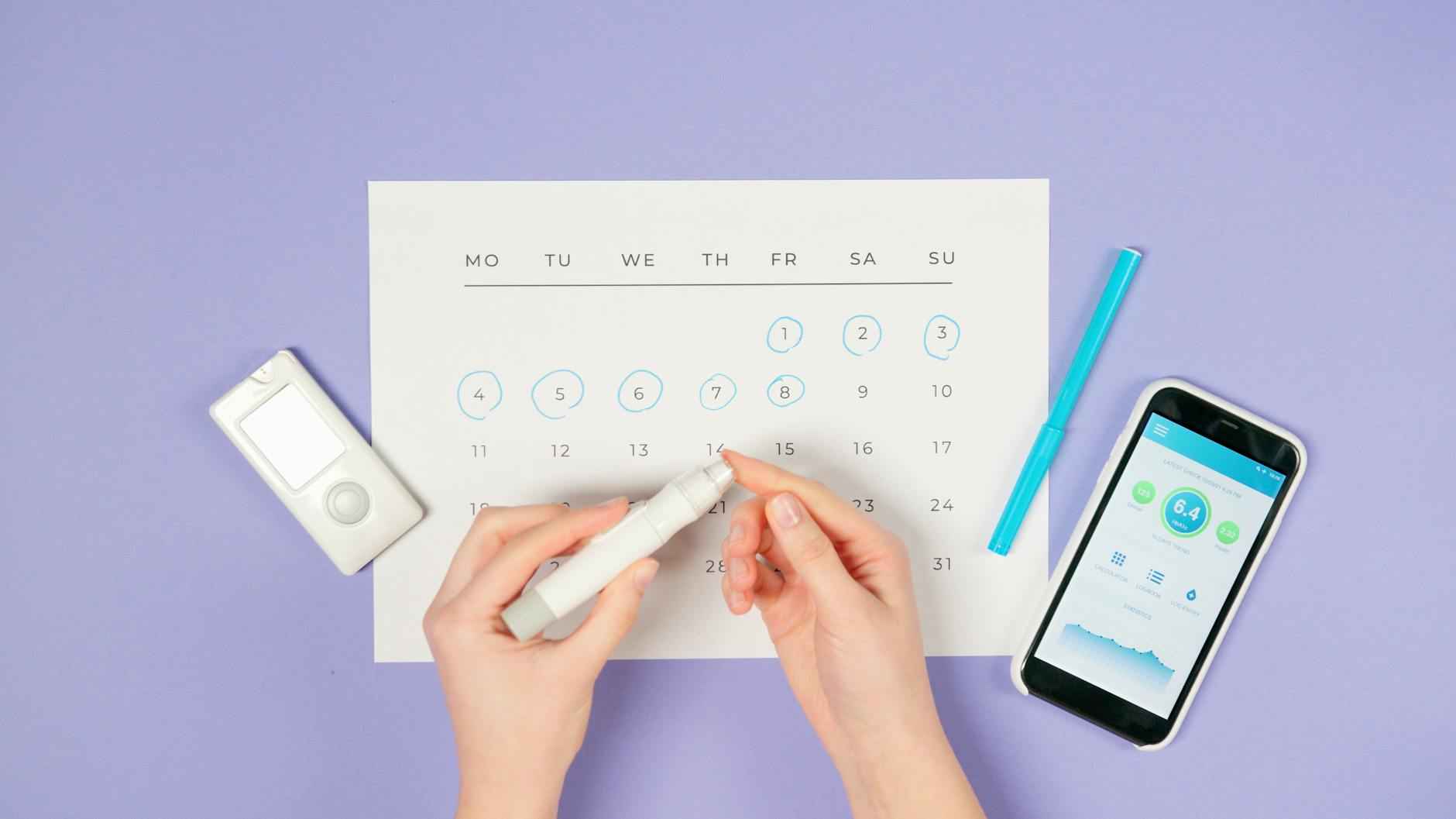
Why You Need Healthcare Apps
So, like, let’s dive into . Seriously, why would you even think about downloading one of those things, right? Well, let me tell you, they can be lifesavers when you’re in a pinch or just wanna know where the nearest hospital is. Imagine you’re traveling in a foreign country, and you twist your ankle or something. You don’t wanna be wandering around clueless, do you? That’s where these apps come in handy.
First off, they help you locate medical facilities nearby. You just whip out your phone, tap a few buttons, and boom! You got a list of clinics or hospitals in your vicinity. Not really sure why this matters, but it’s a big deal when you need help fast. Plus, some apps even give you directions, so you don’t have to play the guessing game with your GPS.
- Convenience: You can access healthcare info 24/7, which is awesome.
- Emergency Contacts: Some apps let you store important medical info, which could save your life.
- Telehealth Options: You can consult with doctors from anywhere, even your hotel room!
Now, let’s talk about the telehealth options. This is becoming super popular, especially for travelers. You might not find a doctor nearby, or you may be too sick to leave your comfy hotel bed. With telehealth, you can talk to a healthcare professional without leaving your space. But, like, can you really trust a doctor you’ve never met? That’s a good question, and honestly, I’m not sure how I feel about it.
But hold up! Not all health issues can be diagnosed over the phone. Sometimes you need a physical exam, which is kinda a bummer when you’re on the go. You could be in a foreign country, and the last thing you wanna do is sit in a waiting room for hours. But hey, it’s better than nothing, right?
Another thing to consider is that not all apps are created equal. You might download one that looks good but turns out to be a total flop. Seriously, I’ve tried a few that were just plain useless. So, it’s important to do your research before you commit. Look for apps with good reviews and features that actually benefit you.
| App Name | Features | User Rating |
|---|---|---|
| HealthTap | Virtual doctor consultations | 4.5/5 |
| Zocdoc | Appointment booking | 4.3/5 |
| Medici | Text your doctor | 4.0/5 |
In conclusion, having a reliable healthcare app on your phone can be a game changer when you’re traveling. It’s like having a safety net, just in case things go south. So, don’t wait until you need help to figure out what to do. Download a few apps, get familiar with them, and be prepared for anything. Trust me, it’s better to be safe than sorry!
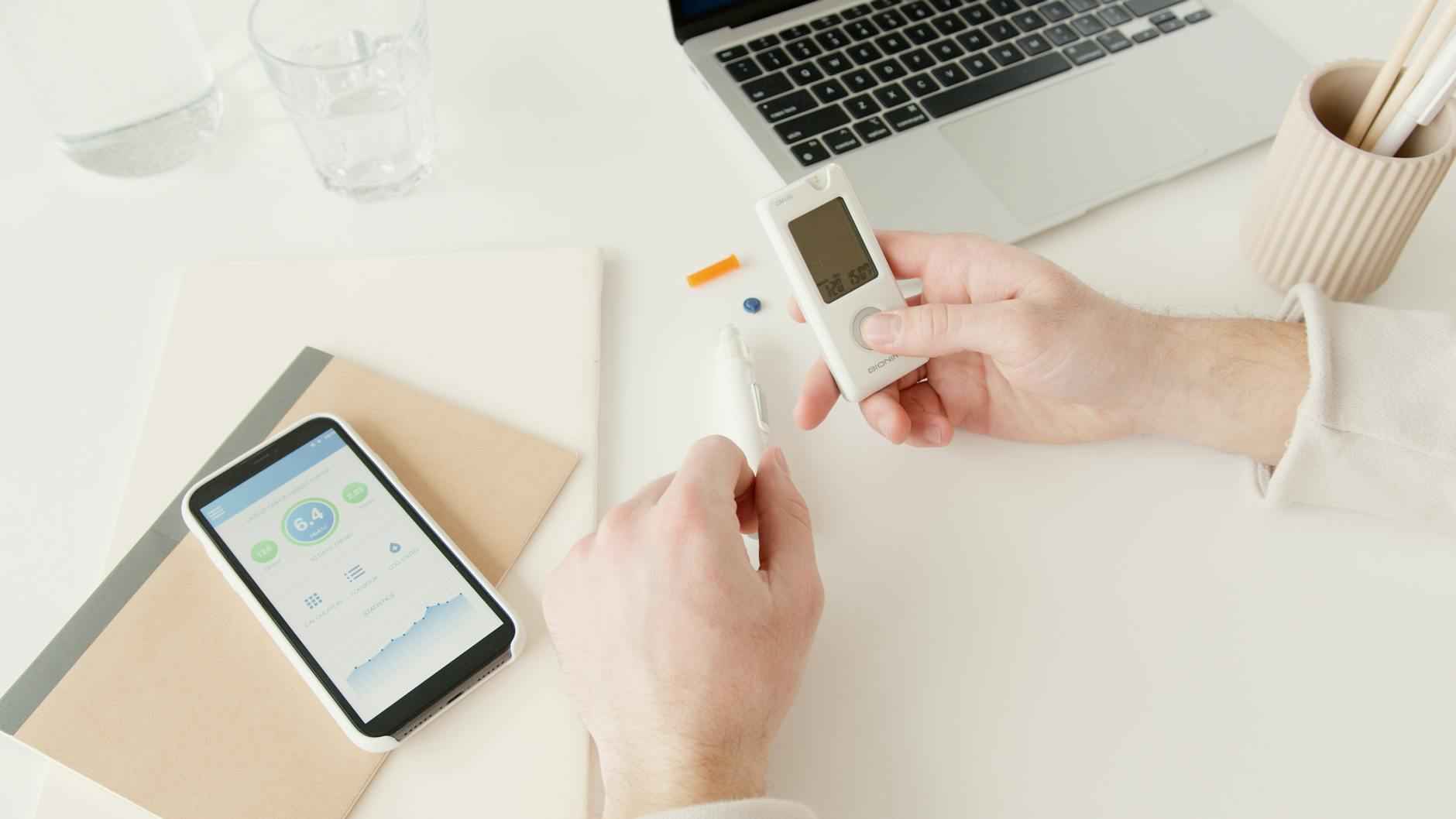
Top Healthcare Apps to Download
In today’s digital age, finding the right healthcare when you travel is, like, super important. You never know when you might need medical assistance, especially in a foreign country. So, let’s dive into the that might actually save you from a pickle.
There’s a bunch of apps out there that promise to help you, but not all of them are worth your time. Here’s a list of the top ones that actually work, I think. And, like, just to be clear, I’m not a doctor or anything, but I’ve done some digging.
- 1. HealthTap: This app is kinda like having a virtual doctor in your pocket. You can ask questions and get answers from real doctors, which is cool, right? But, not really sure why this matters, but you gotta check your insurance before you use it. It can get pricey, and that’s a bummer.
- 2. Zocdoc: Zocdoc helps you find healthcare providers nearby. It’s great for booking appointments, but you might run into some issues with insurance. I mean, who wants to deal with that while on vacation? Not me!
- 3. Medici: So, Medici is for texting your doctor. That’s awesome, but, like, can you really trust a doctor you’ve never met? That’s a good question, and I’m not sure what the answer is.
Using maps is also super helpful if you don’t mind using your phone’s GPS. You can find clinics or hospitals nearby without much hassle, which is, like, a relief. It’s like having a local guide, only digital.
Google Maps is usually more accurate, but some people swear by Apple Maps. It’s personal preference, I guess, but I wouldn’t trust Apple too much. Maybe it’s just me, but I feel like Apple Maps has a mind of its own sometimes.
Before you pick a place, you might wanna read some reviews. It’s not always easy to find reliable info, though. I mean, sometimes people are too harsh, and other times they’re way too lenient. It’s all over the place.
Having an app for emergencies is a must. You never know when you might need to call for help, and it’s better to be prepared, right? Here are a couple of apps that could be lifesavers.
- 1. Red Cross App: This app is great for emergencies. It gives you tips and info on what to do in different situations, which is super helpful. Plus, it’s free, so no excuses!
- 2. ICE – In Case of Emergency: This app lets you store important medical info, which is smart. If you’re in a bad situation, it can literally save your life. Just make sure you remember to update it!
Telehealth is becoming more popular, and it’s a good option if you can’t find a doctor. You can consult with a healthcare professional from anywhere, even your hotel room. But, like, can you really trust a doctor you’ve never met face-to-face? That’s something to think about.
- Benefits of Telehealth: You don’t have to wait in a crowded waiting room, which is a big plus. But, like, not all health issues can be diagnosed over the phone.
- Limitations of Telehealth: Sometimes you need a physical exam, which is a bummer when you’re traveling. It’s just one of those things.
In conclusion, tech tools can really help you find healthcare while traveling. Just make sure to do your research and be prepared for anything. It’s better to be safe than sorry!
1. HealthTap
HealthTap is, like, your very own virtual doctor right there in your pocket. Seriously, you can ask questions and get answers from real doctors, which is kinda cool, I guess. I mean, who wouldn’t want to have a doctor on speed dial, right? It’s like having a lifeline when you’re feeling under the weather or just need some medical advice. But, let’s be real, not every app is created equal, and HealthTap is no exception.
Features of HealthTap
- Chat with Doctors: You can chat with doctors anytime, which is super convenient. But, like, make sure to check your insurance, cause it can get pricey. Not really sure why this matters, but it’s good to know before you dive in.
- Appointment Scheduling: You can schedule appointments too, which is nice. But, honestly, I think some people find it confusing. Like, why can’t they just make it simpler? It’s not rocket science!
User Experience
Users generally say it’s pretty easy to navigate, but I think some folks find it a bit overwhelming. Maybe it’s just me, but I feel like they could’ve done a better job at simplifying things. I mean, who wants to spend hours figuring out how to use an app when you’re already feeling sick?
Pricing and Insurance
Okay, here’s the kicker – the pricing. It can vary a lot based on your insurance plan. So, if you’re traveling, you might wanna double-check what’s covered and what’s not. It’s a hassle, but trust me, you don’t wanna be hit with unexpected charges. Not that I would know from personal experience or anything… just saying!
Telehealth Benefits
One of the biggest benefits of HealthTap is the whole telehealth aspect. You don’t have to sit in a crowded waiting room, which is a big plus. But, like, can you really trust a doctor you’ve never met face-to-face? That’s a good question, and honestly, it kinda freaks me out a little. But hey, desperate times call for desperate measures, right?
Limitations of HealthTap
Now, let’s not sugarcoat it. Not all health issues can be diagnosed over the phone. Sometimes, you really need to see a doctor in person. It’s a bummer when you’re traveling because you might not have access to a local physician. So, yeah, while HealthTap is great, it’s not a miracle worker.
| Pros | Cons |
|---|---|
| Convenient access to doctors | Can be pricey without insurance |
| Chat and appointment scheduling | Not all issues can be handled remotely |
| Telehealth benefits | User interface can be confusing |
In conclusion, HealthTap is a handy tool for finding healthcare when you’re on the go. Just remember, it’s not a substitute for a real doctor. So, do your research and be prepared to ask the right questions. It’s better to be safe than sorry, right?
Features of HealthTap
When it comes to healthcare apps, one of the most popular is HealthTap. This app is like having a doctor in your pocket, which is super convenient when you’re traveling or just need quick advice. You can chat with doctors or even schedule appointments, but hold on a second! Make sure to check your insurance, cause it can get pricey, you know? Not really sure why this matters, but it’s good to know ahead of time.
Here’s the thing, though: navigating insurance can be a real headache. Some people might think, “Oh, I’ll just use my insurance,” but then they find out their plan doesn’t cover telehealth services. It’s like, what? So, always double-check before you dive in. You don’t want to end up with a huge bill just because you wanted to ask a simple question.
- Chat with Doctors: You can send messages to licensed physicians and get responses pretty fast.
- Schedule Appointments: If you need a more in-depth consultation, you can book an appointment directly through the app.
- Insurance Compatibility: Always check if your insurance is accepted to avoid unexpected costs.
Users say HealthTap is easy to navigate, but honestly, I think some people find it confusing. Like, why can’t they just make it simpler? It’s not rocket science! And you know what? Sometimes, when you’re stressed out, the last thing you need is a complicated app.
Another thing to keep in mind is the user experience. Some folks rave about how quick they get responses, while others complain about long wait times. It’s a mixed bag, really. And let’s be real, if you’re in a foreign country and you need help, you want it fast, right? Who has time to wait around for answers?
| Feature | Pros | Cons |
|---|---|---|
| Chat with Doctors | Quick responses | Possible wait times |
| Schedule Appointments | Convenient | Insurance issues |
| User Interface | Generally easy to use | Can be confusing for some |
So, to wrap it up, HealthTap is a nifty tool for anyone who needs quick healthcare advice. But, like I said before, keep an eye on your insurance and the app’s features. Maybe it’s just me, but I feel like having all this info at your fingertips is a game changer, especially when you’re on the go. Just remember, it’s always better to be prepared than to be caught off guard.
User Experience
When it comes to using healthcare apps, the is a big deal, right? I mean, you don’t wanna be stuck fiddling around with a confusing interface when you’re trying to find a doctor. Some users say it’s pretty easy to navigate, but honestly, I think some people find it confusing. Like, why can’t they just make it simpler? Maybe it’s just me, but if I’m in a foreign country, the last thing I need is a complicated app!
So, let’s break down what people are saying about these apps. You know, it’s like a mixed bag. Some folks rave about how intuitive the design is, while others are like, “What the heck is this?” It’s kinda funny how different people can have totally different experiences. Here’s a quick list of some common feedback:
- Easy Navigation: Some users find it a breeze to get from point A to point B.
- Confusing Layout: Others are scratching their heads, wondering where everything is.
- Helpful Features: Many appreciate the options to chat with doctors or book appointments.
- Insurance Issues: A lot of people mention that it’s hard to figure out what’s covered and what’s not.
And then there’s the whole issue of updates. Like, why do companies think it’s a good idea to change the layout every few months? It’s like they’re trying to keep us on our toes or something. One minute you’re used to a certain way of doing things, and the next, bam! Everything’s different. Not really sure why this matters, but it can be super frustrating when you’re in a pinch.
Also, I gotta mention that some users have reported bugs. Like, you’re trying to book an appointment and the app crashes? That’s just the worst! It’s like, come on, I just want to see a doctor, not wrestle with technology. Here’s a tiny table that shows some of the common issues:
| Issue | Frequency |
|---|---|
| App Crashes | Frequent |
| Slow Loading | Sometimes |
| Confusing Navigation | Often |
So, yeah, when you’re checking out these healthcare apps, just keep in mind that not everyone is gonna have the same experience. Some might find it super easy, while others might feel like they’re trying to solve a Rubik’s Cube blindfolded. It’s all about perspective, I guess. And honestly, maybe it’s just me, but I feel like there’s a lot of room for improvement.
In the end, it’s important to remember that these tools are here to help us. They can be lifesavers, especially when you’re traveling and need to find a doctor fast. But if the is a hassle, it kinda defeats the purpose, don’t you think? So when you’re picking an app, maybe look for one that has good reviews about how easy it is to use. It could save you a lot of headaches down the road!
2. Zocdoc
Zocdoc is, like, one of those apps that really helps you find healthcare providers when you’re in a pinch. It’s pretty good for booking appointments, but, like, you might run into some issues with insurance that can make things a bit complicated. Not really sure why this matters, but it’s something to keep in mind, you know?
When you first open Zocdoc, you’ll notice how easy it is to search for doctors based on your location. You just enter your zip code and specialty you need, and voila! A list of options pops up. But, here’s the kicker: not all doctors listed are in-network for every insurance plan. So, you might end up booking an appointment with someone who you can’t even see because your insurance won’t cover it. That’s just a bummer.
- Pros of Using Zocdoc:
- Convenience: You can book appointments anytime, anywhere.
- Variety: Lots of healthcare providers are available.
- User-Friendly: The app is pretty simple to navigate, which is nice for those of us who aren’t tech-savvy.
- Cons of Using Zocdoc:
- Insurance Issues: You may find out your insurance doesn’t cover the visit after you’ve already booked.
- Limited Options: In some areas, there might not be many doctors to choose from.
- Potential Fees: Some doctors charge fees that aren’t covered by insurance, which can be a surprise.
So, like, why should you even bother with Zocdoc? Well, if you’re traveling or new to an area, it can help you find a doctor quickly without having to rely on word-of-mouth recommendations. But, again, just make sure to double-check if your insurance is accepted. Maybe it’s just me, but I feel like a lot of people forget to do that and then get stuck with a huge bill.
Here’s a quick comparison of Zocdoc with some other apps:| App Name | Booking Convenience | Insurance Compatibility | User Ratings ||------------|---------------------|------------------------|--------------|| Zocdoc | High | Variable | 4.5/5 || HealthTap | Medium | High | 4.0/5 || Medici | Low | Low | 3.5/5 |
In conclusion, Zocdoc is a useful tool for finding healthcare providers, especially if you’re in a new city or traveling. Just be aware of the insurance pitfalls that can come up. It’s always better to be safe than sorry, right? So, don’t forget to check if your insurance is gonna cover the visit before you go ahead and book that appointment. Trust me, you’ll thank yourself later!
3. Medici
Medici is like this cool app for texting your doctor, which is awesome, right? But, like, can you really trust a doctor you’ve never met? That’s a good question, and honestly, I’m not really sure what the answer is. Trust is a big deal when it comes to healthcare, and just sending a text message feels kinda weird. I mean, what if you need a physical exam or something? Like, can they really diagnose you through a screen? Maybe it’s just me, but I feel like that’s a little sketchy.
So here’s the thing: Medici lets you chat with healthcare professionals without needing to leave your couch. That’s super convenient, especially if you’re feeling under the weather while traveling. But, can we trust these virtual consultations? It’s not like you can see their face or read their body language, which is important in communication, right? It’s like ordering food online without seeing the menu. You hope for the best but sometimes get a mystery dish.
| Pros of Medici | Cons of Medici |
|---|---|
| Convenient access to doctors | Limited physical exams |
| Quick responses | Trust issues with unknown doctors |
| Easy to use interface | Not all conditions can be treated |
Another thing to think about is how many people actually use Medici. I mean, there’s gotta be a ton of users, right? But do they feel comfortable with it? Like, are they just using it because it’s the only option? I’ve heard mixed reviews from friends. Some say it’s really helpful, while others are like, “Nah, I’d rather see a doctor in person.”
- Convenience: You can text your doctor anytime and anywhere.
- Cost: It can be cheaper than a regular visit, but check your insurance.
- Privacy: You might worry about your medical info being secure.
And let’s not forget about the tech side of things. Sometimes, the app crashes or you can’t get a signal. That’s super frustrating, especially if you’re trying to get help. Imagine being stuck in a foreign country, feeling awful, and your app just won’t work. Ugh, right? Not really sure why this matters, but it’s something to consider. What if you need a prescription? Can they send it to a pharmacy? Or do you have to go through a whole other process?
In conclusion, Medici has its benefits, but it’s not without its drawbacks. It’s like a double-edged sword, you know? You get convenience but also a lack of trust. So, if you’re gonna use it, maybe do a little research on the doctors you’re chatting with. Just because you’re texting doesn’t mean you should lower your standards for healthcare. So, weigh the pros and cons and decide what’s best for you. It’s better to be safe than sorry, right?
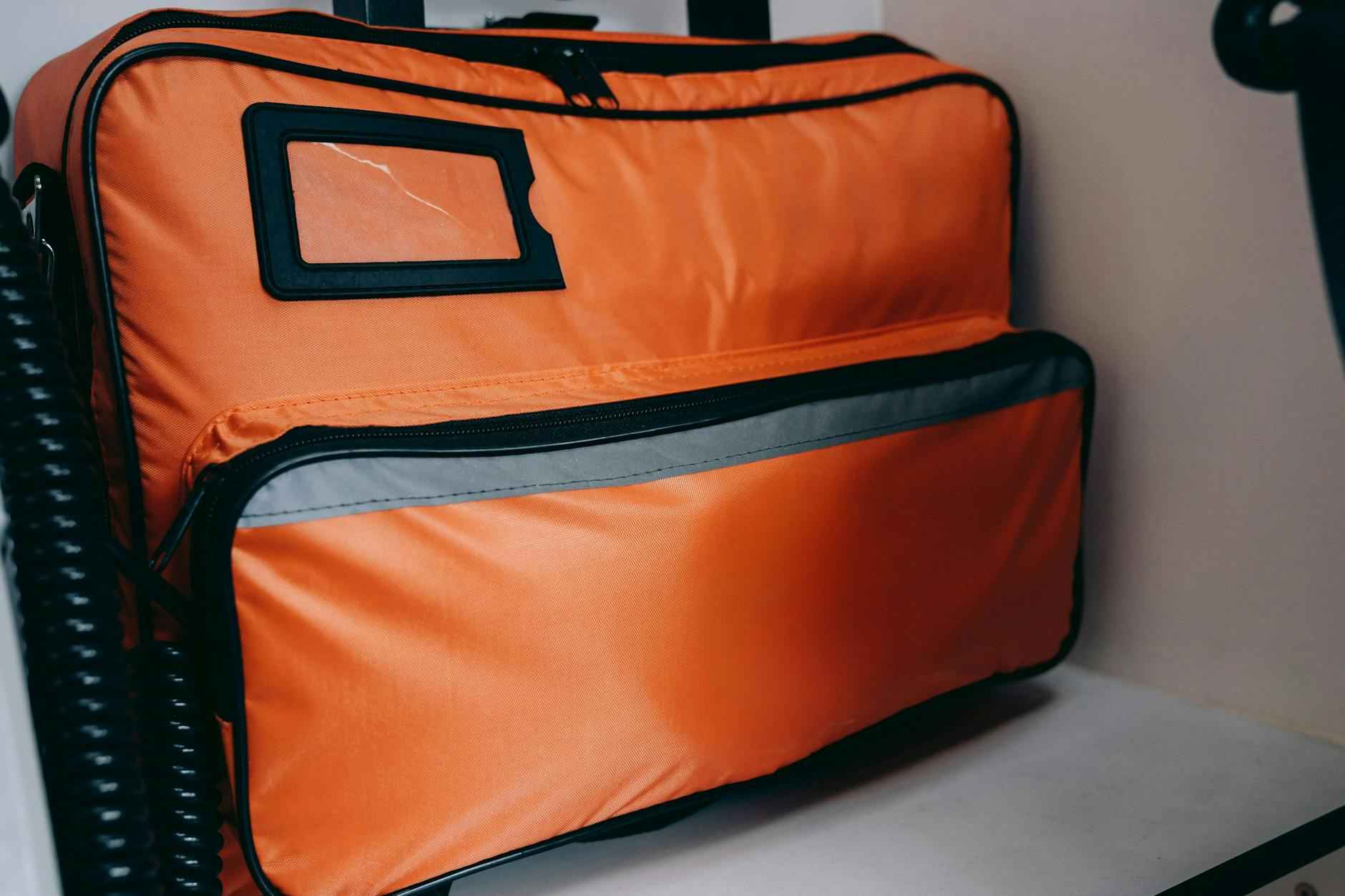
Using Maps for Finding Clinics
Maps are, like, super helpful when you’re trying to find healthcare services while traveling. If you don’t mind using your phone’s GPS, then you’re in luck! It’s pretty easy to locate clinics or hospitals nearby without much hassle, which is, like, a relief when you’re in an unfamiliar place. I mean, who wants to wander around aimlessly when you’re not feeling well, right?
So, let’s dive into the nitty-gritty of how maps can make your life easier:
- Convenience: You just pull out your phone, open a map app, and boom! You can see the nearest healthcare facilities. It’s almost like magic, but not really.
- Real-Time Updates: The best part is that these maps give you real-time traffic updates. If there’s a jam, you can find a quicker route. Not sure why this matters, but it might save you some time in an emergency.
- Directions: You get turn-by-turn directions, which is super handy. I mean, who even remembers street names these days? It’s all about the visuals, am I right?
Now, speaking of maps, let’s compare Google Maps and Apple Maps. You know, it’s like the classic Coke vs. Pepsi debate. Google Maps is usually more accurate, but some people swear by Apple Maps. It’s all about personal preference, I guess, but I wouldn’t trust Apple too much with directions. They’ve led me astray more than once, and that’s saying something!
When you’re using these maps, you might also want to check out the reviews of the healthcare facilities. Before you pick a place, reading some reviews is a good idea. But, like, it’s not always easy to find reliable info. Maybe it’s just me, but I feel like people are too harsh sometimes. Like, if a doctor made you wait an extra five minutes, do you really need to leave a one-star review? Come on!
| App | Pros | Cons |
|---|---|---|
| Google Maps | Accurate, real-time updates | Can drain battery quickly |
| Apple Maps | Easy to use, integrates with iOS | Less accurate in some areas |
And, okay, let’s talk about the importance of having a backup plan. Sometimes, maps can fail you. I mean, what if your phone dies or you lose service? It’s not the end of the world, but it’s always a good idea to have a physical map or know the general area you’re in. Just in case, you know?
In conclusion, maps can be a lifesaver when you’re trying to find clinics or hospitals while traveling. Just remember to keep your phone charged, read those reviews, and always have a plan B. It’s better to be safe than sorry! So, go ahead and explore the world, but don’t forget your tech tools!
Google Maps vs. Apple Maps
is a hot topic among travelers, and honestly, it’s kinda funny how divided people can be over something so simple, right? You got your die-hard fans of each app, and then there’s me, sitting here wondering why we even care so much. Like, at the end of the day, they both help you get from point A to B, but let’s dive a little deeper into it.
First off, Google Maps is usually seen as the more accurate option. It’s packed with features that can help you find not just routes, but also local businesses, restaurants, and even traffic updates. I mean, who doesn’t love knowing how long they’ll be stuck in traffic? But, like, sometimes it feels overwhelming with all the info it throws at you. Not really sure why this matters, but it’s like trying to drink from a fire hose.
On the flip side, you got Apple Maps, which some people swear by. They say it’s more user-friendly, but I don’t know, I’ve had my fair share of mishaps with it. It’s like sometimes it just decides to take you on a scenic route that you never asked for. Maybe it’s just me, but I feel like it’s a bit too optimistic about where you should be going. The interface is clean, sure, but does that make up for the fact that it can lead you astray? Who knows.
| Feature | Google Maps | Apple Maps |
|---|---|---|
| Accuracy | Often more accurate | Can be hit or miss |
| User Interface | Detailed but busy | Simpler and cleaner |
| Traffic Updates | Real-time updates | Less reliable |
| Local Business Info | Extensive | Limited |
So, when it comes to finding healthcare while traveling, both apps can be useful. Google Maps might give you a more comprehensive list of nearby clinics or hospitals, but Apple Maps could be easier to navigate if you’re already stressed out. And let’s be real, when you’re in a foreign country, the last thing you want is to be fumbling with your phone trying to figure out where to go.
But here’s the kicker: what if you’re in a pinch and need to find a place fast? In that case, maybe it’s better to rely on the app that you’re more comfortable with, even if it’s not the most accurate. I mean, I’ve had moments where I just needed directions and didn’t care if it was the best route or not. It’s like, just get me there!
In conclusion, choosing between Google Maps and Apple Maps really boils down to personal preference. Some folks love Apple’s straightforwardness, while others are all about Google’s detailed features. Either way, just make sure you have a plan and maybe even download both apps if you’re feeling adventurous. After all, you never know when you might need a backup, right?
Finding Reviews on Healthcare Facilities
When you’re traveling, especially in a foreign country, finding reliable healthcare can be a real challenge. Before you pick a place, you might wanna read some reviews. But, like, it’s not always easy to find trustworthy info, right? Maybe it’s just me, but I feel like people are too harsh sometimes, like, they expect a five-star hotel experience at a clinic. It’s a clinic, not a spa!
- Check Multiple Sources: Don’t just rely on one website for reviews. There’s Yelp, Google, and even Facebook, but each can be kinda biased. You gotta look at a bunch of them to get a clearer picture.
- Look for Recent Reviews: If the reviews are from, like, three years ago, it’s probably not relevant anymore. Facilities change, doctors come and go, so stick to the most recent feedback.
- Consider the Overall Rating: A place might have a couple of bad reviews, but if the overall rating is decent, it might be worth checking out. But, you know, if it’s below three stars, maybe keep looking.
Another thing to think about is the language barrier. Sometimes, reviews are written in the local language and you might not understand them. Google Translate can be your best friend here, but it’s not always perfect. You might end up thinking a place is amazing when really, it’s just “okay.”
And then, there’s the issue of personal bias. Some people just love to complain, while others are super easy to please. So, when reading comments, try to read between the lines. Like, if someone is mad because they had to wait an hour, maybe they just didn’t plan their time well. Not really sure why this matters, but it’s something to think about.
| Source | Pros | Cons |
|---|---|---|
| Yelp | Lots of reviews, detailed experiences | Some fake reviews, and people can be dramatic |
| Easy to use, integrated with maps | Not all reviews are verified | |
| Community feedback, quick responses | Can be very subjective, and sometimes just plain rude |
Also, keep in mind that not all facilities are created equal. I mean, you might find a clinic that has, like, a super fancy website, but the actual service is terrible. It’s all about doing your homework, which, let’s be honest, can be a pain sometimes. But hey, better safe than sorry, right?
In conclusion, finding the right healthcare facility while traveling can be tricky. You gotta sift through the reviews, keep an eye out for biases, and don’t forget to consider the language barrier. Just remember, it’s all about finding the right balance between trust and skepticism. So, go ahead, do your research, and hopefully, you’ll find a place that meets your needs without too much hassle!
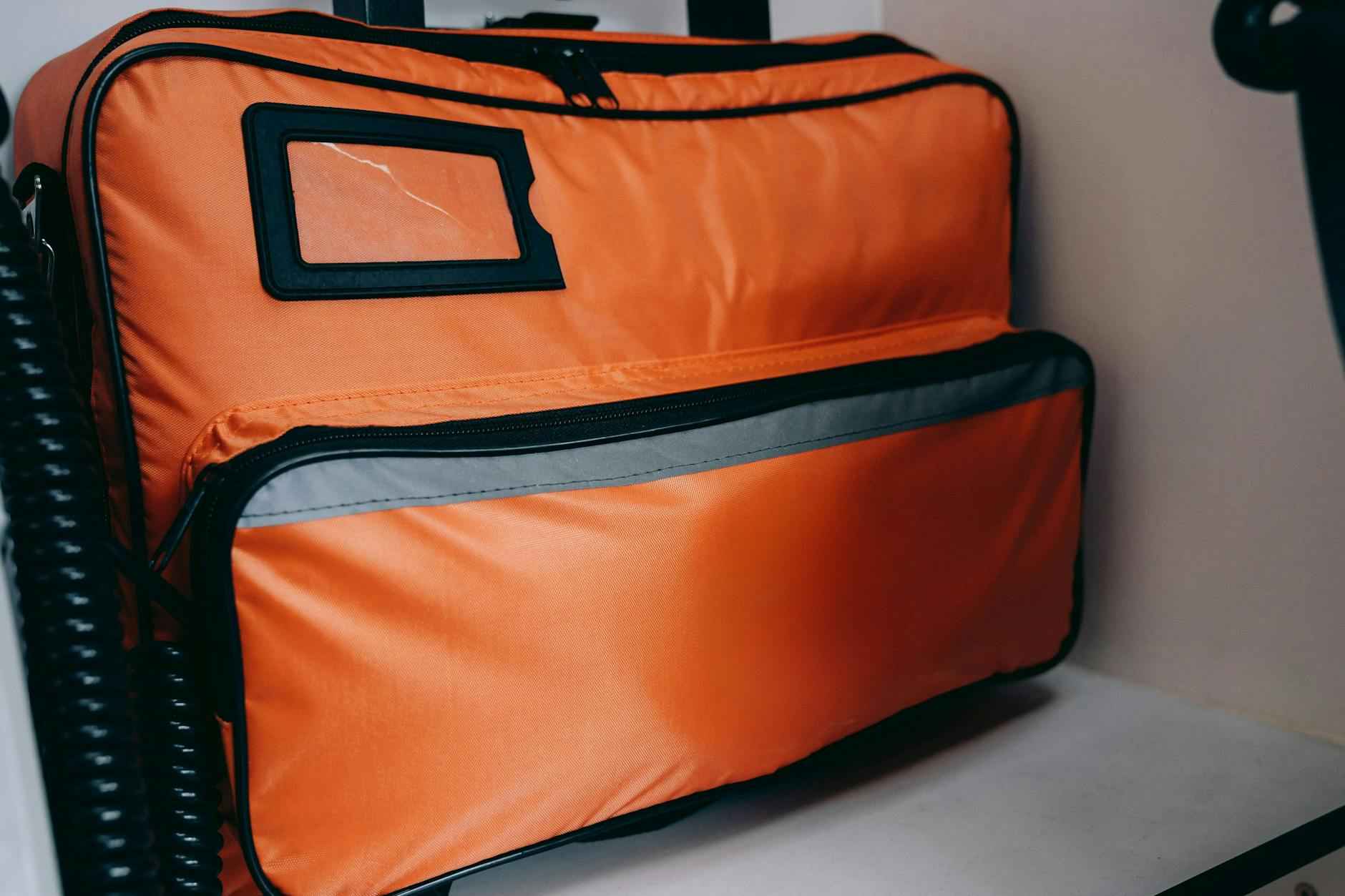
Emergency Services Apps
are super important when you’re traveling or just out and about. You never know when you might need to call for help, and it’s better to be prepared, right? Like, imagine you’re in a foreign country, and you twist your ankle or something. You don’t wanna be scrambling around trying to find help, do you? That’s where these apps come in handy. They are like your safety net, just in case things go south.
So, let’s dive into a couple of the most useful emergency services apps that you should totally have on your phone:
- 1. Red Cross App – This app is awesome for emergencies. It gives you tips and info on what to do in different situations, which is super helpful. Not really sure why this matters, but it could save your life. Plus, it has features like finding blood donation centers and learning CPR, which is pretty neat.
- 2. ICE – In Case of Emergency – This app lets you store important medical info, which is smart. If you’re in a bad situation, it can save your life, but what if you forget your phone? Kinda ironic, right? Anyway, you can put in details like allergies, medications, and emergency contacts, which is really good to have on hand.
Now, let’s talk about why having these apps is like, super crucial:
- Quick access to vital information- Ability to call for help with just a tap- Guides on what to do in emergencies- Store personal medical info for quick reference
But, like, let’s be real for a second. Not everyone is tech-savvy, and some people might struggle with using these apps. Maybe it’s just me, but I feel like sometimes they can be confusing. You download the app, and then it’s like, “What do I do now?” It shouldn’t be rocket science, but sometimes it feels like it.
Also, you gotta keep your phone charged, which is another thing. If your battery dies, then what? You’re basically back to square one. So, always carry a portable charger, just in case. It’s like, the last thing you wanna worry about when you’re in a crisis is your phone dying.
In conclusion, having an emergency services app is not just a good idea, it’s a must-have. You never know when you might need to reach out for help, and being prepared can make all the difference. So, go ahead and download these apps, and don’t forget to familiarize yourself with them before you really need them. Trust me, you’ll thank yourself later!
1. Red Cross App
The Red Cross app is a really useful tool for emergencies. Like, it’s not just some fancy gadget; it actually gives you tips and info on what to do in different situations, which is super helpful. I mean, who doesn’t want to know what to do if, say, they sprain their ankle while hiking in a foreign country? Not really sure why this matters, but it totally does when you’re in a pinch.
One of the coolest features of the Red Cross app is that it offers a variety of emergency guides. You can find info on natural disasters, first aid, and even how to prepare for emergencies. The app’s interface is pretty simple to navigate, but I guess some people might find it a bit overwhelming. Like, why is there so much info? Just give me the highlights!
| Feature | Description |
|---|---|
| Emergency Alerts | Receive real-time alerts for your area about disasters or emergencies. |
| First Aid Tips | Step-by-step guides on how to handle various medical emergencies. |
| Emergency Contacts | Store important contacts that can be reached in case of an emergency. |
Also, the app provides a “Find Help” feature that helps you locate nearby hospitals or shelters. This is especially important if you’re traveling and don’t know the area. I mean, it’s not like you can just Google “hospital,” right? Well, you could, but having it all in one app is way more convenient. Plus, you never know when you might need it.
But here’s the thing: the app does require an internet connection for most of its features. So, if you’re in a remote area with no signal, you might be out of luck. Maybe it’s just me, but I feel like they should have some offline features too, you know? Like, what if you’re camping and your phone dies? That would be a bummer.
And let’s talk about the user experience. Some users rave about how easy it is to use, while others are like, “What the heck is this?” It’s pretty much a mixed bag. I guess it depends on how tech-savvy you are. If you’re the type who can barely send a text, you might struggle a bit.
- Pros: Great resource for emergency preparedness.
- Cons: Requires internet, which can be a hassle.
- Overall: Definitely worth downloading before your next trip!
In conclusion, the Red Cross app is a must-have for anyone who travels or just wants to be prepared for emergencies. It’s packed with useful information and features, but like anything, it has its limitations. Just make sure to check it out and have it ready on your phone. You never know when you might need it!
2. ICE – In Case of Emergency
So, let’s talk about this app called ICE – In Case of Emergency. It’s pretty much a lifesaver, like, literally! You can store all your important medical info in one place, which is super smart. If you’re ever in a bad situation, having all that info handy could save your life. Not really sure why this matters, but it does, especially when you’re traveling.
Imagine you’re in a foreign country, and you suddenly feel sick or have an accident. You’re panicking, and the last thing you want to do is fumble through your bag looking for papers or trying to remember your allergies. That’s where ICE comes in. You can have your medical history, emergency contacts, and even your insurance details right at your fingertips. It’s like having a personal assistant, but in your pocket!
- Easy to Use: The app is designed to be user-friendly, so even if you’re not tech-savvy, you can figure it out. You just enter your info once, and it’s all saved for you.
- Shareable: You can share your information with first responders or medical personnel quickly. This is crucial, especially if you’re unconscious or unable to speak.
- Customizable: You can add specific medical conditions, medications you’re taking, and anything else that could be relevant in an emergency. It’s like customizing your own personal medical profile!
But, like, here’s the catch. You gotta remember to keep the app updated. If you change medications or have a new allergy, you need to update that info. Otherwise, it’s not gonna do you much good, right? Maybe it’s just me, but I feel like people forget about these things. You don’t wanna be in a situation where your emergency contact is outdated or your allergies aren’t listed. That could make things worse!
And let’s not forget about the importance of having a backup. What if your phone dies? Or you lose it? It’s always a good idea to have a printed copy of your medical info too. Just saying! I mean, you never know what could happen when you’re out and about.
| Feature | Description |
|---|---|
| Data Storage | Store all your vital medical information in one place. |
| Emergency Sharing | Quickly share your info with medical professionals. |
| Custom Fields | Add personal medical conditions and allergies. |
In conclusion, the ICE – In Case of Emergency app is a must-have for anyone who travels or just wants to be prepared. It’s like insurance for your health, but in app form! So, if you haven’t downloaded it yet, what are you waiting for? Just remember to keep it updated, and maybe consider carrying a backup. Better safe than sorry, right?

Telehealth Options While Traveling
So, like, telehealth is really becoming more and more popular, right? And it’s kinda like a lifesaver if you can’t find a doctor in a foreign country. You can consult with a healthcare professional from anywhere, even your hotel room, which is super convenient. But, you know, there’s always that little voice in the back of your head saying, “Can I really trust a doctor I’ve never met?” Not really sure why this matters, but it’s a thought that pops up, especially when you’re feeling under the weather.
One of the best things about telehealth services is that you don’t have to wait in a crowded waiting room. I mean, who enjoys sitting next to someone coughing their lungs out? Gross! Instead, you can just hop on your phone or laptop and chat with a doctor from the comfort of your own space. But, like, not all health issues can be diagnosed over the phone. Sometimes, you really need that physical exam, which is a bummer when you’re traveling. Here’s a quick look at what you can expect:
| Pros of Telehealth | Cons of Telehealth |
|---|---|
| Consult from anywhere | Limited physical exams |
| No waiting rooms | Internet connection needed |
| Access to specialists | Insurance coverage varies |
Now, let’s talk about some popular telehealth options. There’s this app called Talkspace which is, like, perfect for mental health support. You can text or video chat with a therapist, which is pretty cool. But, honestly, I wonder if that’s enough? I mean, can you really open up about your problems through a screen? Maybe it’s just me, but I feel like human interaction is kinda important. However, when you’re traveling, it’s definitely a good option to have.
Another one is Amwell, which offers a range of services from urgent care to therapy. It’s kinda like having a doctor in your pocket, but again, you gotta check if your insurance covers it. It can get pricey, and I’m not really sure why that matters, but it does. Here’s a list of some other telehealth services you might wanna check out:
- MDLive – Great for urgent care.
- HealthTap – Offers a variety of consultations.
- PlushCare – Good for primary care needs.
So, while telehealth is super convenient, it’s not without its limitations. Like, what if you need a prescription? Most telehealth services can handle that, but you might have to find a local pharmacy to fill it. And let’s not even get started on the tech issues. What if your video call drops? Or the app crashes? Ugh! It’s like, seriously, can anything go smoothly?
In conclusion, telehealth is a really great option when you’re traveling, but it’s not a one-size-fits-all solution. Just make sure to do your research and know what you’re getting into. It’s better to be prepared than to find yourself in a sticky situation without any help. So, keep your phone handy, and don’t forget to download those apps before your next adventure!
Benefits of Telehealth
So, like, telehealth is becoming a big deal these days, especially for travelers. I mean, who wants to sit in a crowded waiting room when you can just, you know, talk to a doctor online? It’s super convenient and can save you a ton of time, but is it really all that good? Like, can you trust a doctor you’ve never met face-to-face? Not really sure why this matters, but it’s something to think about.
- Convenience: You can consult with a healthcare professional from anywhere, even your hotel room. It’s like having a doctor in your pocket. But, like, what if your Wi-Fi is bad? That could be a problem, right?
- Cost-Effective: Telehealth is usually cheaper than in-person visits. But, be careful! Some services might have hidden fees, and who likes surprise charges? Not me!
- Accessibility: If you’re in a foreign country and need help, telehealth can connect you with a doctor who understands your needs. But, I guess, language barriers could be a thing. What if the doctor doesn’t speak your language? Awkward!
- Less Stress: You don’t have to deal with the hassle of traveling to a clinic. You can just chill in your PJs and get the help you need. But, like, what if you need a physical exam? That’s a whole different story!
But let’s be real for a sec. There’s some limitations too. Not all health issues can be diagnosed over the phone. Sometimes you need a physical exam, which is a bummer when you’re traveling. And what if the doctor gives you bad advice? That’s kinda scary, right? It’s like getting a haircut from someone who just graduated beauty school. You just hope for the best!
| Pros of Telehealth | Cons of Telehealth |
|---|---|
| Convenience | Limited physical exams |
| Cost-effective | Possible misdiagnosis |
| Accessibility | Language barriers |
| Less stress | Internet issues |
In conclusion, telehealth is a game changer for travelers, but it’s not perfect. You gotta do your research and know what to expect. Maybe it’s just me, but I feel like some people rely too much on it and forget that sometimes you need to see a doctor in person. It’s all about balance, right? So, next time you’re on the road and feeling under the weather, consider giving telehealth a shot, but don’t forget to keep your options open!
Limitations of Telehealth
are, like, super important to understand, especially when you’re traveling and need medical help. So, let’s dive into it, shall we?
First off, not all health issues can be diagnosed over the phone. Sometimes, you just need a physical exam, which can be a real bummer when you’re out exploring some foreign country. I mean, who wants to waste their vacation time in a clinic, right? But, like, it happens. You might think you have a simple issue, but it could be something more serious that requires a doctor’s hands-on approach. It’s kinda scary when you think about it, because you’re in an unfamiliar place and, well, who knows how the healthcare system works there?
- Physical exams are crucial for proper diagnosis.
- Some conditions just can’t be assessed through a screen.
- Language barriers can complicate things even more.
Another thing to consider is that telehealth services may not have access to your medical history. When you’re in a different country, the doctor on the other end of the line might not know your past health issues or allergies. And, like, what if you’re allergic to something that they prescribe? Yikes! It’s like playing a game of Russian roulette with your health, and who wants that?
| Telehealth Pros | Telehealth Cons |
|---|---|
| Convenience | Limited physical assessments |
| Access to specialists | Potential misdiagnosis |
| No waiting rooms | Communication issues |
Also, internet connectivity can be a big issue. Imagine trying to explain your symptoms over a shaky Wi-Fi connection. It’s frustrating, and it can lead to misunderstandings. Not really sure why this matters, but, like, if you can’t hear each other properly, how can you expect to get the right treatment? It’s a bit of a nightmare if you ask me.
And let’s not forget about time zone differences. If you’re trying to reach a doctor back home while you’re in a totally different time zone, good luck! You might be waiting forever for a response, and by that time, your symptoms could have worsened. It’s like, “Hello, I need help here!”
Lastly, not every telehealth provider is created equal. Some might be super professional while others, well, not so much. It’s a gamble, really. You could end up with a doctor who’s totally clueless or one who really knows their stuff. Maybe it’s just me, but I feel like you should do your homework before you trust someone with your health.
In conclusion, while telehealth is a great option when you can’t find a doctor, it definitely has its limitations. You gotta be aware of these issues before you rely on it, especially when you’re away from home. So, just stay prepared and keep your health in check, okay?
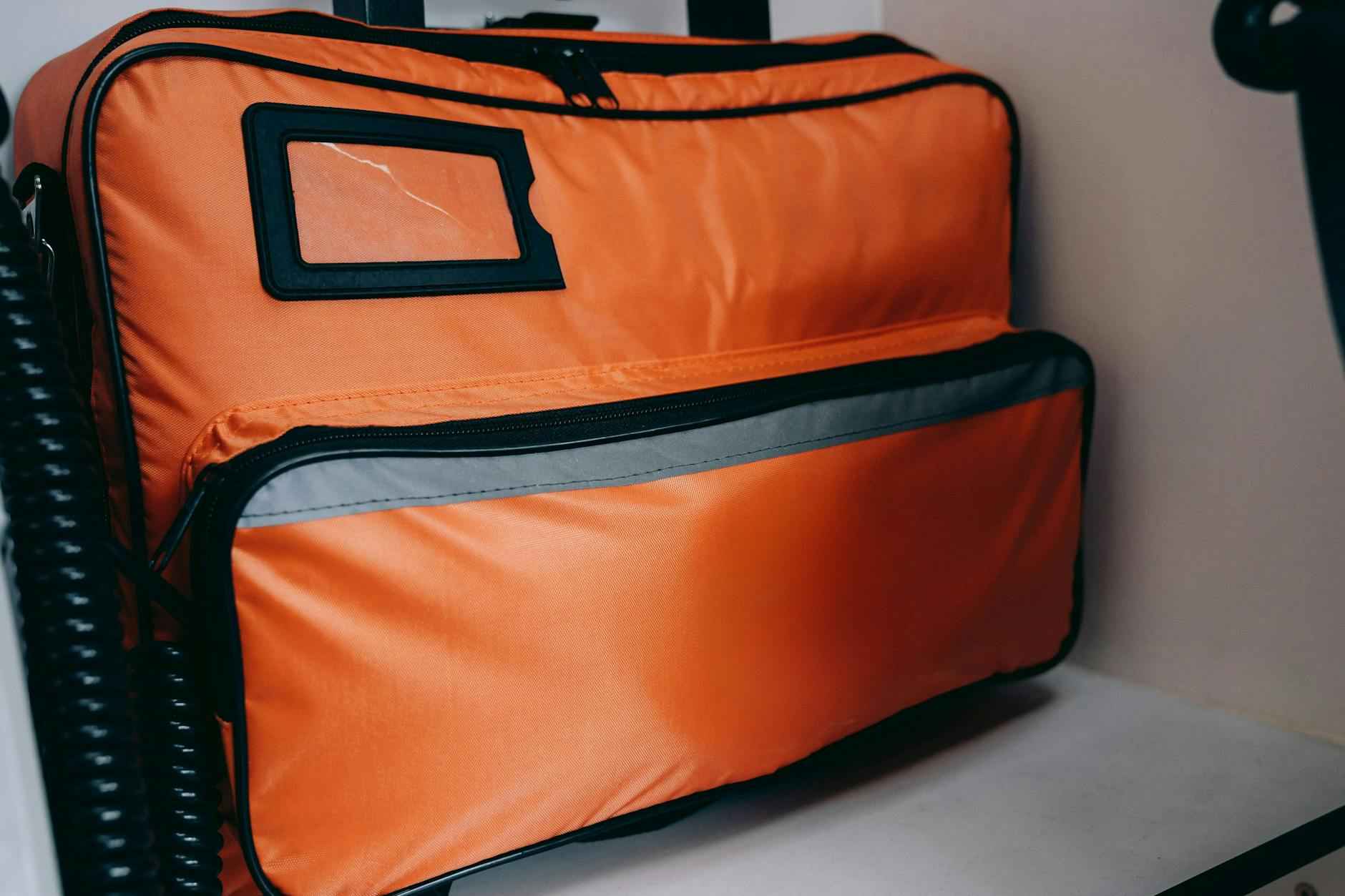
Final Thoughts on Tech Tools
When it comes to traveling, especially to foreign countries, having the right tech tools to find healthcare can be like a lifesaver. You never know when a cold might hit or you might trip and fall. So, let’s dive into the world of healthcare tech tools, shall we?
Healthcare apps are becoming more and more essential. I mean, who wants to wander around a city looking for a hospital when you can just pull out your phone? It’s super important, right? But, like, not all apps are created equal. Some are great, while others? Not so much. Here’s a quick rundown of some of the best ones!
- HealthTap – This app is like having a doctor in your pocket, which is kinda amazing. You can ask questions and get answers from real doctors, but just be careful with your insurance. It can get pricey, not really sure why this matters, but it does.
- Zocdoc – This one helps you find healthcare providers. It’s pretty neat for booking appointments, but again, don’t forget about insurance issues. They can sneak up on you!
- Medici – Texting your doctor? Yes, please! But, like, can you really trust a doctor you’ve never met before? That’s a question for the ages.
Now, let’s talk about using maps to find clinics. Maps are super helpful, especially when you’re lost. You can find clinics or hospitals nearby without much hassle. Google Maps is usually more accurate, but some people swear by Apple Maps. It’s all a matter of preference, I guess, but I wouldn’t trust Apple too much.
Before you decide on a place, it’s always a good idea to read some reviews. But, maybe it’s just me, but I feel like people can be too harsh sometimes. It’s like, come on, not every place is going to be perfect!
Having an app for emergencies is an absolute must. You never know when you might need to call for help. Here’s a couple of good ones:
- Red Cross App – This app is fantastic for emergencies, giving you tips and info on what to do in different situations. Super helpful, right?
- ICE – In Case of Emergency – This app lets you store important medical info. If you’re in a bad situation, it can literally save your life!
Now, let’s not forget about telehealth options while traveling. It’s becoming more popular, and it’s a good option if you can’t find a doctor. You can consult with a healthcare professional from anywhere, even your hotel room. But, like, can you really trust a doctor you’ve never met face-to-face? That’s a real concern.
However, not all health issues can be diagnosed over the phone. Sometimes you need a physical exam, which is a bummer when you’re traveling. So, keep that in mind!
In conclusion, tech tools can really help you find healthcare while traveling. Just make sure to do your research and be prepared for anything. It’s better to be safe than sorry! So, grab your phone, download those apps, and enjoy your travels.
Frequently Asked Questions
- Why should I use healthcare apps while traveling?
Healthcare apps can be lifesavers when you’re in a foreign country. They help you locate nearby hospitals, schedule appointments, and even consult with doctors, making your travel experience much safer and more convenient.
- Are all healthcare apps trustworthy?
Not all healthcare apps are created equal. It’s essential to do your research and read reviews to find the ones that are reliable and effective. Some apps may have issues with insurance coverage, so check those details before relying on them.
- What if I can’t find a doctor nearby?
If you’re struggling to find a doctor, telehealth options can be a great alternative. You can consult with healthcare professionals via video calls or messaging, even from your hotel room.
- How do I choose the best healthcare app?
Look for apps that have good user reviews, a straightforward interface, and features that meet your specific needs. Apps like HealthTap, Zocdoc, and Medici are popular choices worth considering.
- What should I do in case of an emergency?
Having an emergency app, like the Red Cross app or ICE (In Case of Emergency), can provide you with crucial information and resources. These apps can guide you on what to do in various emergency situations.
